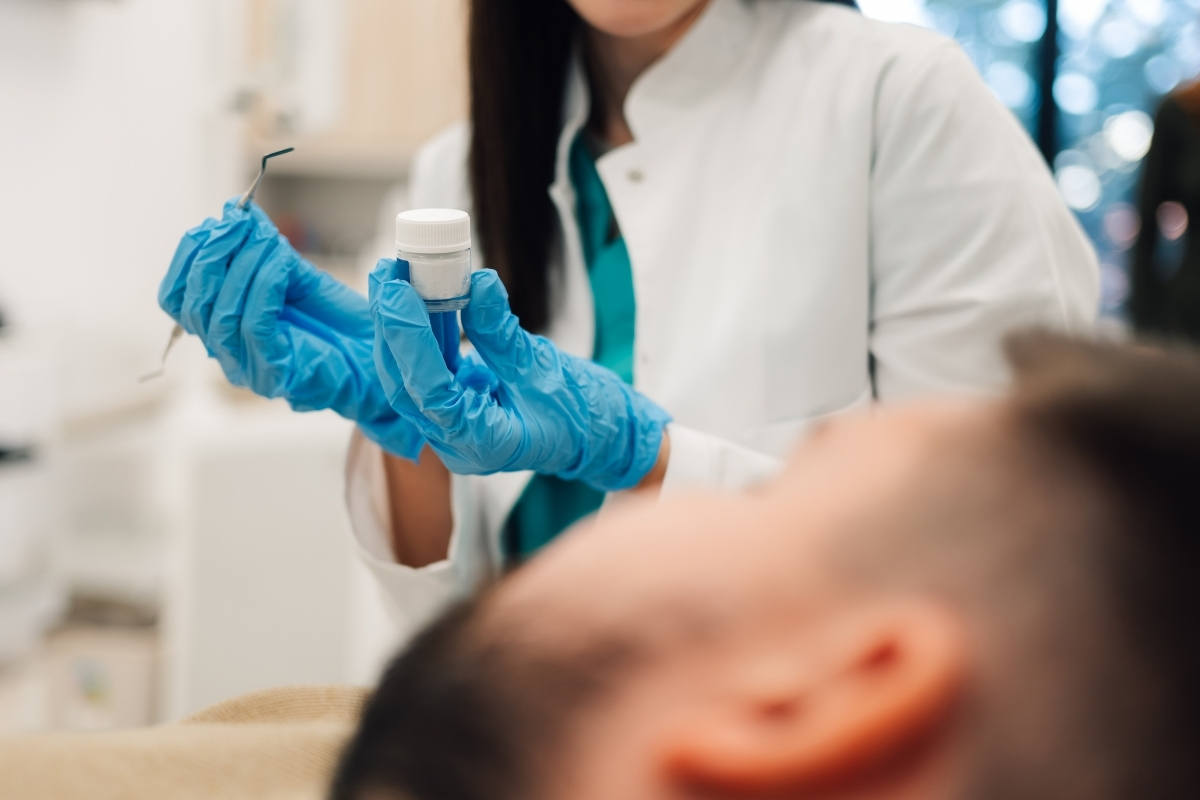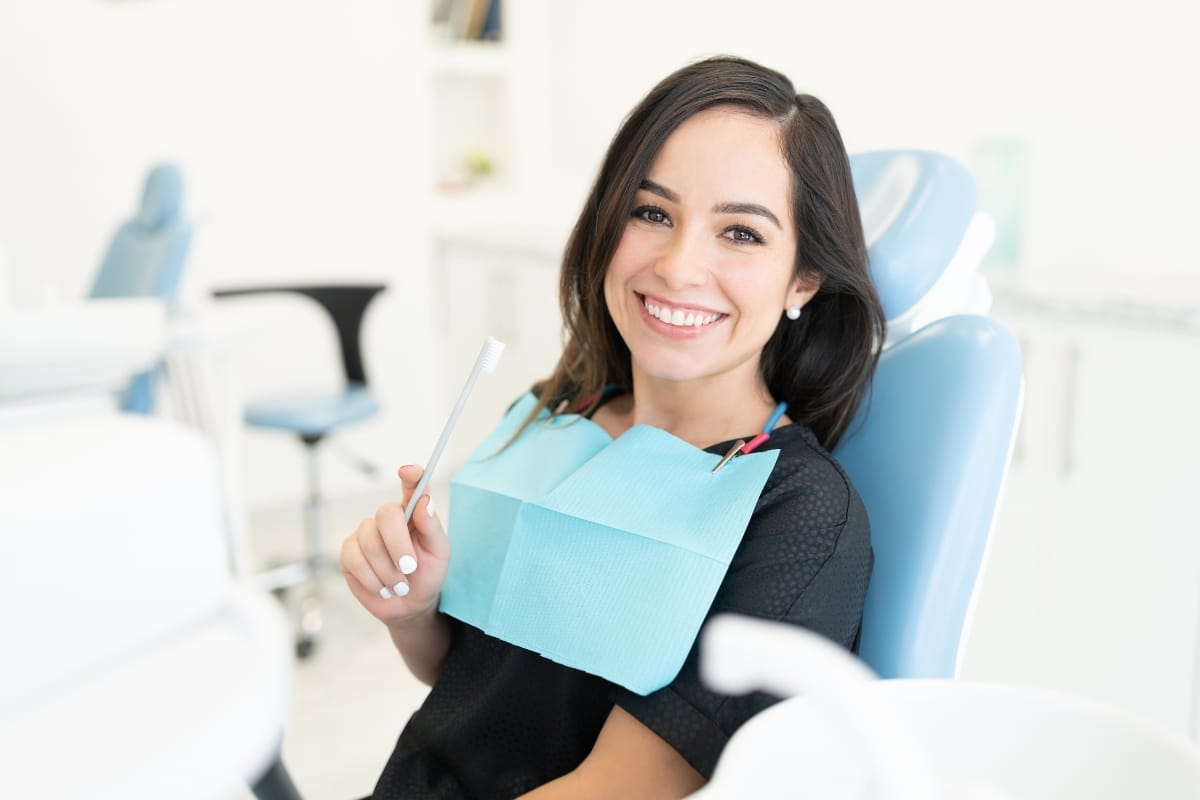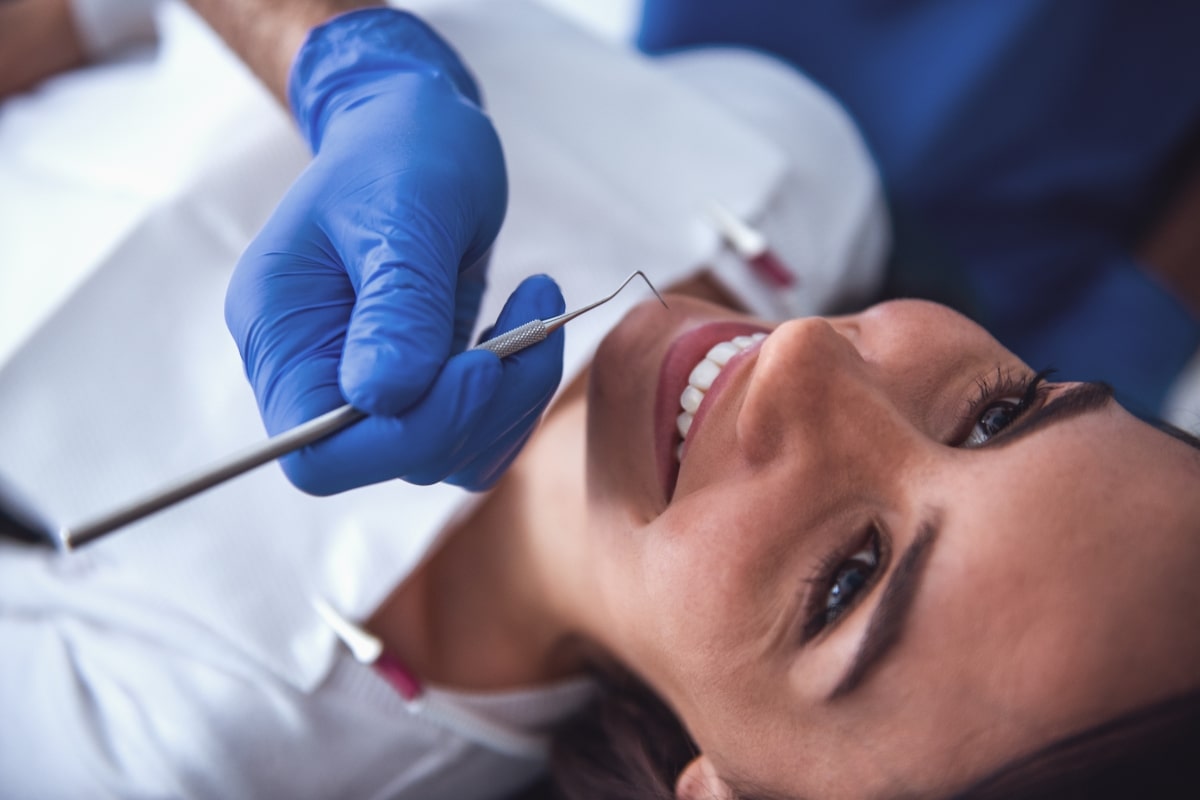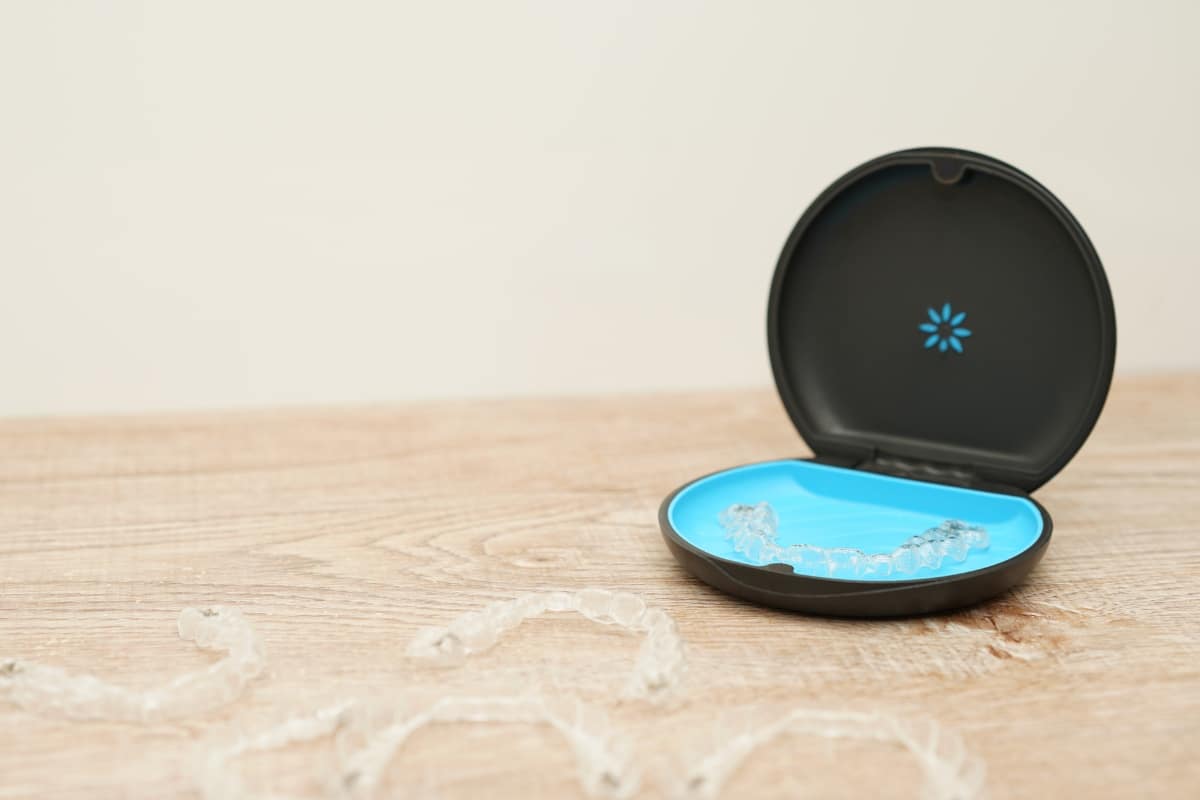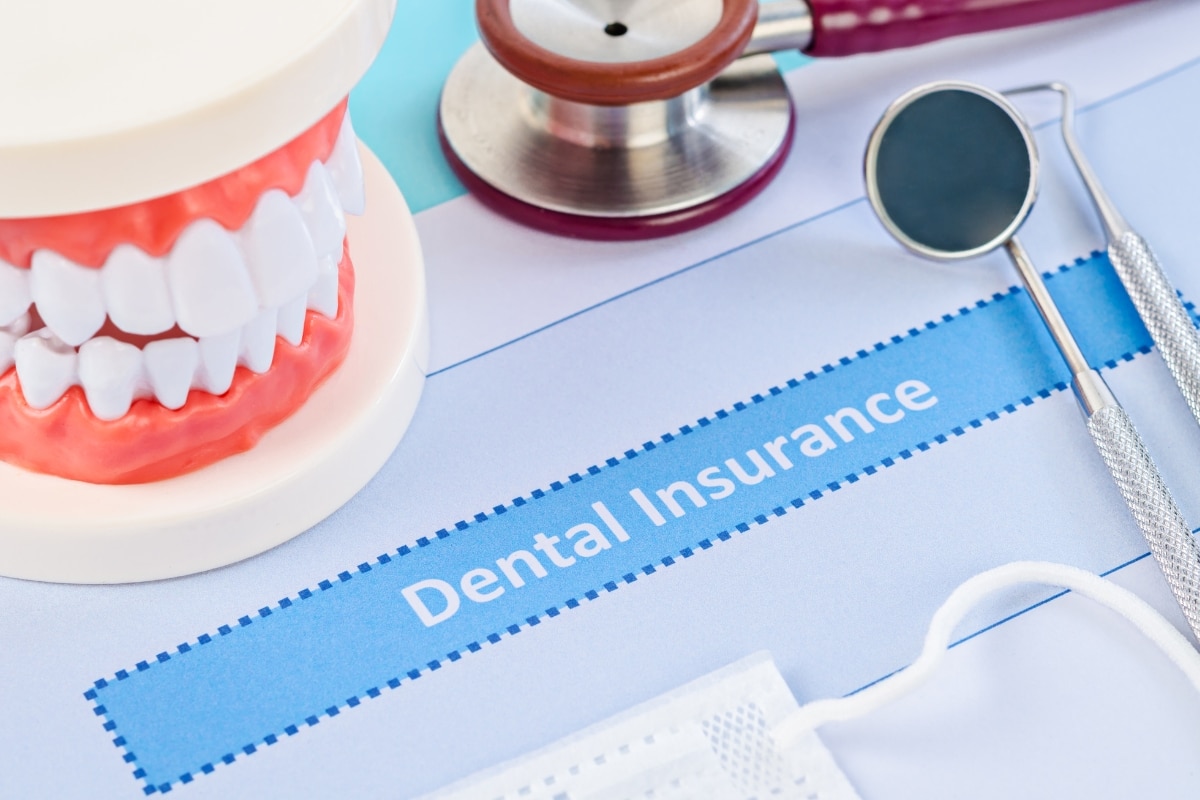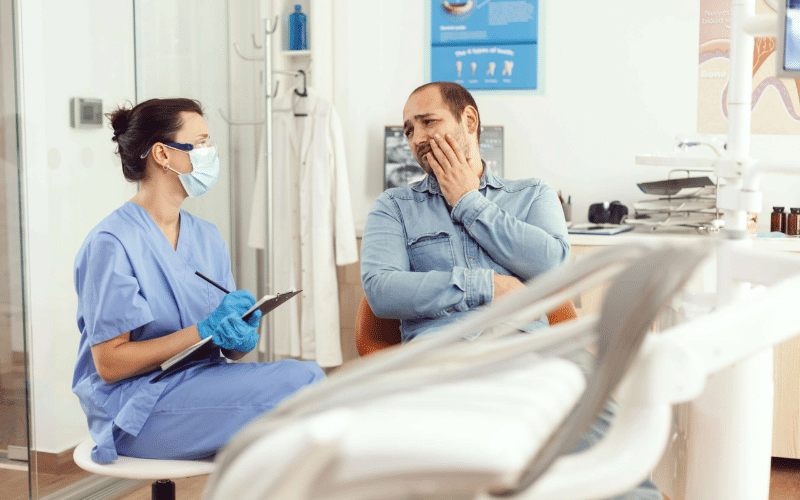
A dental emergency can rapidly turn a wonderful vacation into a bad dream, even though travelling is an exhilarating adventure. The last thing you want is for your plans to be derailed by unexpected tooth discomfort or a damaged crown, whether you’re climbing in the mountains, exploring a new city, or relaxing on the beach.
According to studies, one out of six Americans has a dental emergency every year, and many of them happen while travelling. But you can lower your risk and have a worry-free trip with a little planning and smart habits. Here’s how!
Quick Fixes For Dental Emergencies On The Go
1. See Our Dentist Before Your Trip
Two weeks before your vacation, make an appointment for a checkup to ensure your teeth are in good condition. Travel can make it difficult to access dental care, so addressing potential issues beforehand is crucial.
- Address any gum disease, cavities, or loose fillings.
- Verify the security of any dental restorations, such as crowns, veneers, and implants.
- Get a professional cleaning to remove plaque and tartar buildup.
- Ask your dentist for advice on managing dental emergencies while traveling.
Small complications throughout your journey can be avoided with a brief visit.
2. Bring a Dental Kit for Travel
Keep basic dental supplies on hand in case of minor teeth problems.
- Fluoride toothpaste and Toothbrush.
- Interdental brushes or floss.
- Gum without sugar for dry mouth.
- Painkillers, such as ibuprofen.
- Temporary dental wax or filling.
- A tiny mouthwash bottle.
You can deal with problems more rapidly and calmly if all these stuff are well-packed and in case of a severe issue, having the contact information of an emergency dentist in Gold River can be a lifesaver..
3. Watch What You Eat and Drink
Making mindful food and drink choices can go a long way in protecting your teeth while traveling. Acidic beverages like citrus juices and soda can erode enamel, while coffee and red wine may cause staining.
Sticky and sugary foods increase plaque buildup, leading to cavities. Staying hydrated and choosing the right foods can help maintain a healthy smile.
- Acidic drinks (citrus juices, soda) weaken enamel and cause sensitivity.
- Coffee & red wine can stain teeth—rinse with water afterward.
- Crunchy fruits & veggies (apples, carrots) help clean teeth naturally.
- Stay hydrated to prevent dry mouth and wash away bacteria.
- Limit sticky & sugary snacks to reduce plaque buildup and cavities.
Smart choices help prevent dental mishaps while traveling.
4. Avoid Bad Oral Habits
- Don’t use teeth as tools (no bottle or package opening).
- Avoid nail-biting & pen-chewing.
- Wear a nightguard if you grind your teeth.
Being mindful prevents chips, cracks, and pain while traveling, ensuring better oral health throughout your trip..
5. Stay Hydrated & Keep Up Oral Care
Drink plenty of water to prevent dry mouth, which can lead to bad breath and tooth decay. Staying hydrated also helps wash away food particles and bacteria.
- Brush & floss daily, even on busy days.
- Use mouthwash when brushing isn’t possible.
- Chew sugar-free gum to stimulate saliva and keep your mouth fresh.
- Avoid excessive caffeine and alcohol, as they contribute to dry mouth.
A simple routine prevents infections, bad breath, and dental issues.
6. Know What To Do in a Dental Emergency?
Sometimes, despite your best efforts, a dental emergency can still happen. Knowing how to respond quickly can prevent further complications and ease discomfort until you get professional care. Here’s what to do:
- Toothache? Rinse with warm salt water to reduce bacteria and soothe irritation. Take a pain reliever if needed, but avoid placing aspirin directly on the gums.
- Lost filling or crown? Cover the area with dental wax or temporary filling material to protect the tooth from sensitivity and damage. Avoid chewing on that side.
- Broken tooth? Rinse your mouth with warm water and use a cold compress to reduce swelling. Save any broken fragments if possible.
- Knocked-out tooth? Handle it by the crown (not the root), keep it moist in milk or saliva, and seek a dentist or emergency dentist immediately—time is critical for reimplantation.
- Soft tissue injury? If you bite your tongue, lip, or cheek, rinse gently with warm water and apply a clean gauze pad to control bleeding.
Being prepared and acting fast can make all the difference in a dental emergency.
Travel with Confidence & Protect Your Smile
Overall, a dental emergency can be stressful, but with a little preparation and smart habits, you can prevent most problems and enjoy your travels worry-free. Taking care of your teeth while on the go ensures you won’t have to deal with unexpected pain or discomfort.
Pack a dental kit, stay mindful of your eating habits, and keep up with daily oral care. Staying hydrated and avoiding harmful habits will also help maintain a healthy smile. If an issue arises, knowing the contact information of an emergency dentist can provide peace of mind.
With these tips in mind, you can explore, adventure, and smile confidently—no matter where your travels take you.

